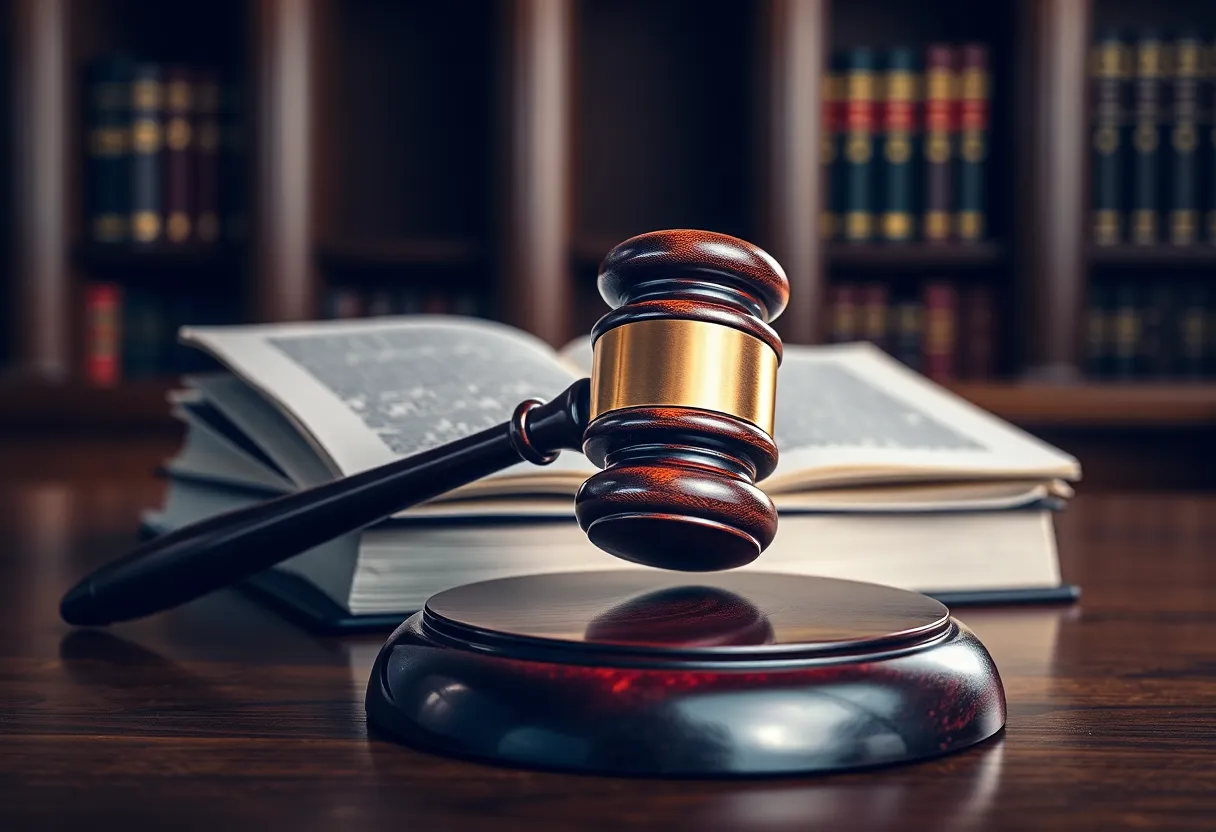News Summary
The California Supreme Court has approved changes to bar exam scoring due to technical issues during the February 2025 exam. This decision will allow the State Bar to release results to over 4,200 applicants and introduces new standards incorporating the Multistate Bar Exam. Concerns about the integrity of the exam, especially regarding the use of AI in question development, have led to calls for transparency and reform in legal assessments. The court’s actions aim to restore credibility and reliability in the bar exam process amidst ongoing controversies.
California – The California Supreme Court has approved adjustments to bar exam scores following substantial technical issues during the February 2025 exam. This decision enables the State Bar to release results to the 4,231 applicants who participated in the exam, after a period of uncertainty fueled by concerns regarding the examination’s integrity and fairness.
The justices mandated that for future exams, the State Bar must incorporate the Multistate Bar Exam to assess the multiple-choice section in the July examination. This shift reflects the court’s dissatisfaction with the previous exam processes, particularly regarding the controversial use of artificial intelligence (AI) in crafting questions.
Approximately one month before the exams were conducted, the State Bar disclosed that 29 of the 200 questions on the February exam had been developed using AI. This revelation raised significant concerns among educators and legal experts, especially as some questions were allegedly recycled from exams administered to first-year law students, further questioning the legitimacy of the testing process.
In response to these issues, the court set a new passing standard for the bar exam—a raw score of 534. This score is determined by a total of 700 points from the written section and 171 from the multiple-choice segment, both weighted equally at 50%. In contrast, the raw passing score for the February 2025 test was established at a much lower threshold of 420 points.
Additionally, the court endorsed the use of psychometric imputation for grading the tests of applicants who completed at least 114 out of the 171 multiple-choice questions and at least four of the six written components, thus providing some relief for those affected by the exam’s technical difficulties.
The exam was not only hindered by AI-related controversies but also by logistics. Test takers encountered various problems while using an online examination platform. Many reported being removed unexpectedly, experiencing lagging issues, and grappling with ambiguous questions. These technical failures contributed to a federal lawsuit aimed at the exam administration company, Meazure Learning, raising alarms over the reliability of the bar exam process.
These ongoing controversies have prompted significant criticism from the legal education community, leading to calls for transparency within the State Bar. Critics argue for the release of all 200 questions from the February exam to allow for thorough scrutiny and analysis. Further, California Senate Judiciary Chair Thomas J. Umberg has responded to the situation by urging an audit of the State Bar, highlighting widespread concerns regarding the examination’s conduct.
The situation surrounding the bar exam is compounded by a context of financial strain on the State Bar, leading to a push for new examination models. With a $22 million deficit, the State Bar sought assistance from Kaplan Exam Services to create exam content, a decision that now faces scrutiny in light of the testing fiasco.
Legal educators and faculty members have expressed strong opposition to the notion of AI being involved in question formation, drawing attention to significant validity concerns. Despite these claims, the State Bar maintains that the questions were vetted by content validation panels and subject matter experts prior to the examination without disclosing the AI aspect initially.
The decision to modify scoring and practices moving forward not only intends to restore the credibility of the California bar examination but also reflects a critical need for systemic reform in how legal assessments are conducted in the state. As the testing environment continues to evolve, both applicants and educators await clarity on how these changes will shape the future of legal examinations in California.
Deeper Dive: News & Info About This Topic
- The New York Times: California Bar Exam Controversy
- Wikipedia: California Bar Exam
- Bloomberg Law: California Justices and Bar Exam Scoring
- Google Search: California Bar Exam
- Los Angeles Times: AI in California Bar Exam
- Google Scholar: California Bar Exam AI
- The Guardian: California Bar Exam and AI Usage
- Encyclopedia Britannica: Bar Exam
- Ars Technica: AI’s Role in California Bar Exam
- Google News: California Bar Exam AI Controversy

Author: STAFF HERE MISSION VIEJO WRITER
The MISSION VIEJO STAFF WRITER represents the experienced team at HEREMissionViejo.com, your go-to source for actionable local news and information in Mission Viejo, Orange County, and beyond. Specializing in "news you can use," we cover essential topics like product reviews for personal and business needs, local business directories, politics, real estate trends, neighborhood insights, and state news affecting the area—with deep expertise drawn from years of dedicated reporting and strong community input, including local press releases and business updates. We deliver top reporting on high-value events such as Oso Fit 5K Fun Run and Community Health Fair, Walk Against Drugs & Community Fair, and National Night Out. Our coverage extends to key organizations like the Mission Viejo Chamber of Commerce and Providence Mission Hospital Mission Viejo, plus leading businesses in retail and education that power the local economy such as The Shops at Mission Viejo, Capistrano Unified School District, and Amazon Delivery Station. As part of the broader HERE network, including HEREAnaheim.com, HEREBeverlyHills.com, HERECostaMesa.com, HERECoronado.com, HEREHollywood.com, HEREHuntingtonBeach.com, HERELongBeach.com, HERELosAngeles.com, HERESanDiego.com, and HERESantaAna.com, we provide comprehensive, credible insights into California's dynamic landscape.


